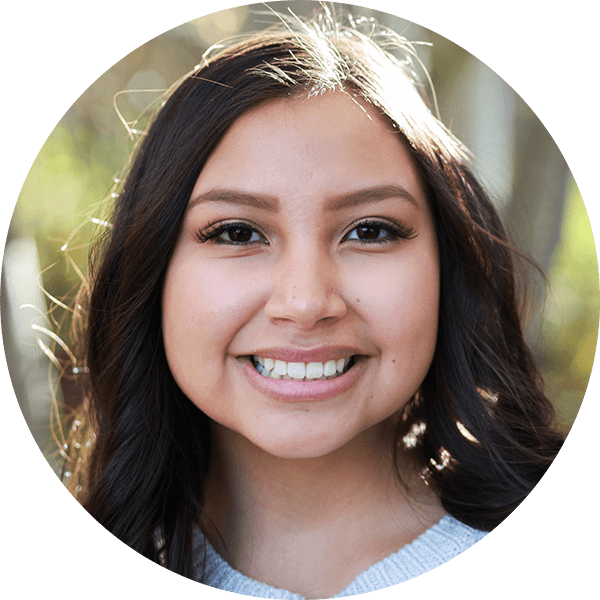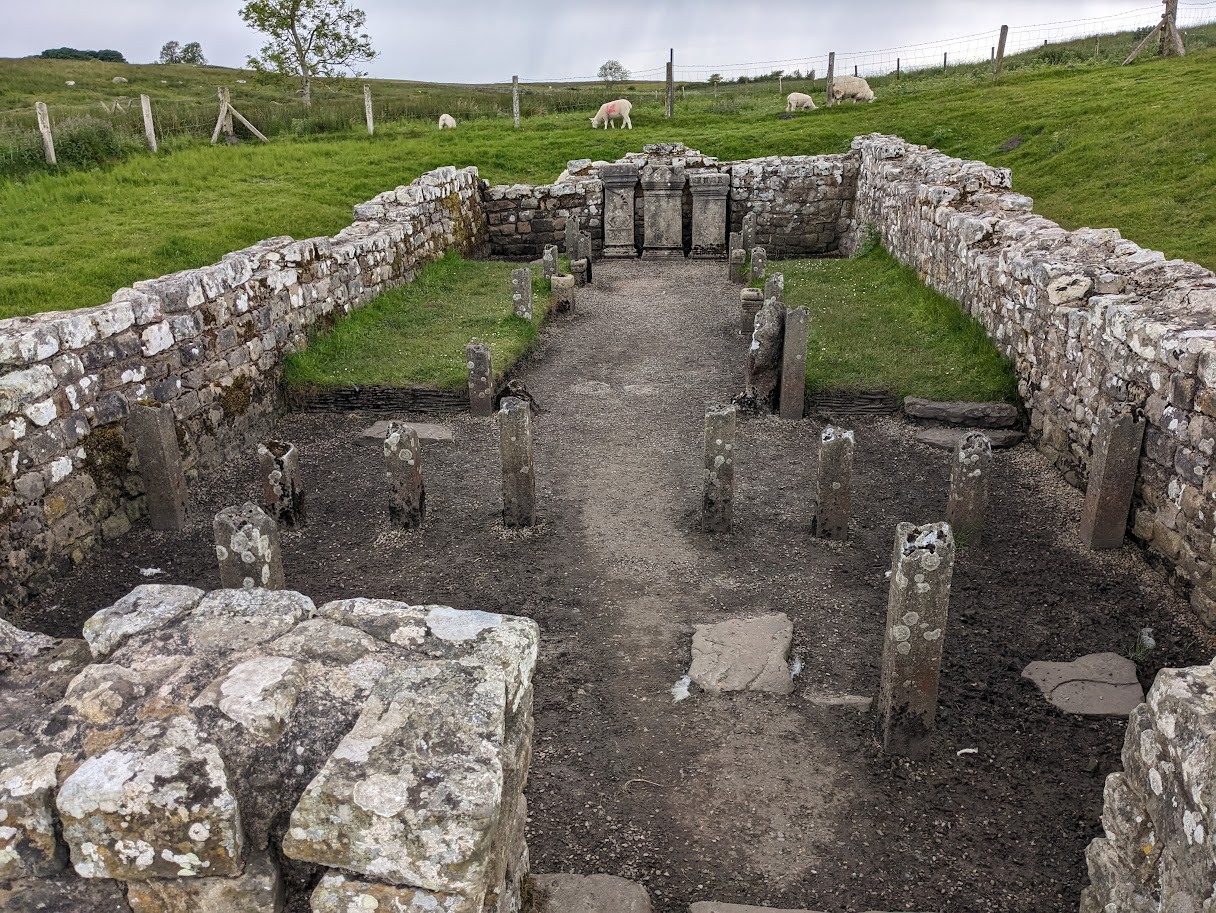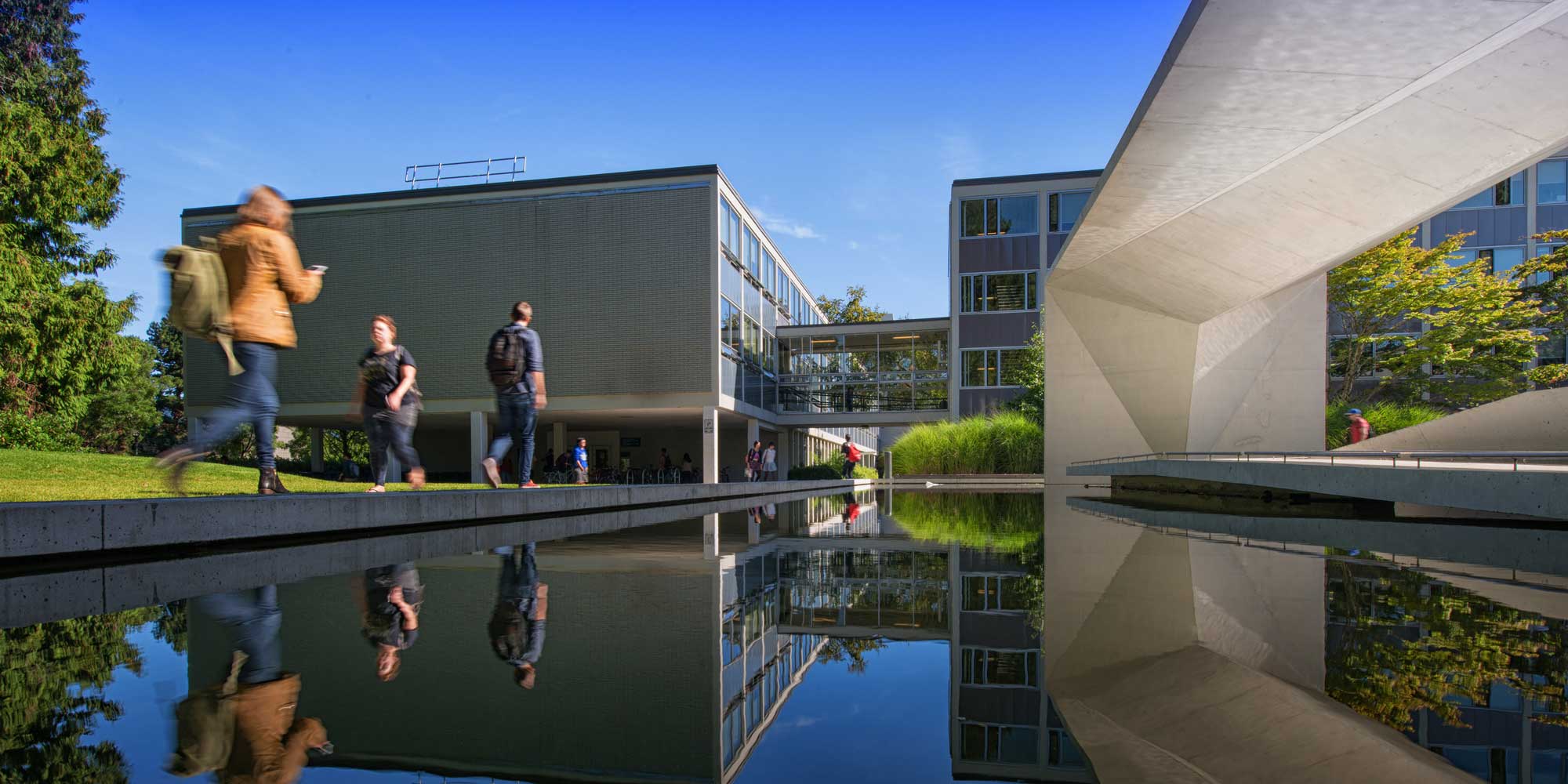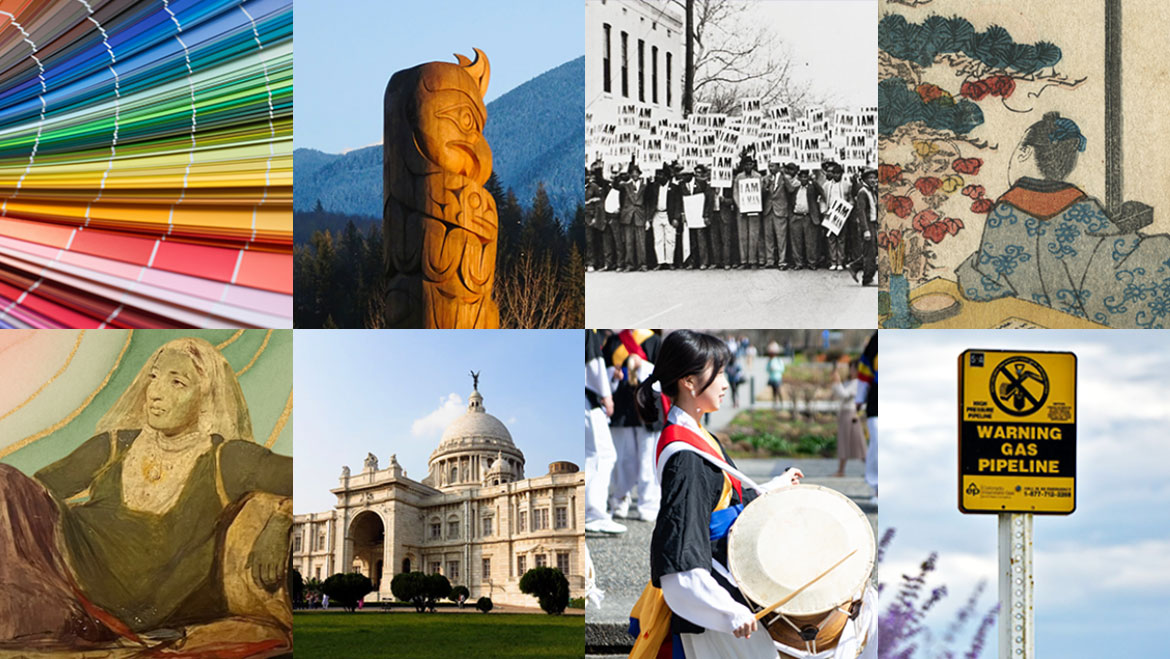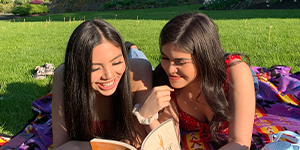

By Arts Indigenous Student Advising
Arts Indigenous Advising Peer Advisor Aiyana Twigg speaks with Wenonah and Nicole North Peigan, undergraduate students in the Faculty of Arts, about being sisters renting in Vancouver, participating in the Indigenous undergraduate research mentorship, and reconnecting with their grandmother.
Wenonah and Nicole North Peigan are sisters who have mixed Blackfoot and Odawa ancestry. They are Blackfoot on their dad’s side, members of the Piikani Nation located in Treaty 7 Territory; and Odawa on their mom’s side, from Wiikimekong unceded Territory. Nicole and Wenonah both grew up in Calgary, Alberta and currently reside on unceded Musqueam, Squamish, and Tseil-Waututh Territories. Nicole is studying Psychology and is inspired by the current need for Indigenous Psychologists. Wenonah is in her final year of her Political Science degree with a focus on Indigenous Politics.
With the transition to online school and work, how have you both found sharing the same space? What kind of advice do you have for family members or roommates sharing their at-home study space?
Nicole: So far, it has been a good learning process on how to mediate, respect boundaries, and share space. It’s easy to stay motivated when my sister is doing her school work. However, sometimes we do distract each other. Advice I would give is to set clear boundaries from the start, and acknowledge that it’s a learning process for everyone involved and people make mistakes.
Wenonah: It’s sometimes difficult to create good study spots in our apartment but we’re lucky to have each other to stay accountable. Another piece of advice is to figure out home-time versus school and work time.
You both mentioned that you have found awesome resources to support yourselves during the pandemic. Do you mind sharing those resources?
Wenonah: When I first moved to Vancouver (before Nicole was in university) I always struggled with affordability and creating a comfortable living space. As I have gotten to know the city and meet people, I’ve been very lucky and grateful to find out about opportunities for Indigenous youth to succeed.
Nicole: The resources we have used are the Pacific Community Resources Society and Vancouver Aboriginal Transformative Justice Services Society. They offer rent subsidies and gift cards, along with immensely helpful courses on tenancy/landlord law and rules.
This year, you both applied for the Indigenous undergraduate research mentorship program. What inspired you to apply and what are you most excited to learn from this experience?
Nicole: This mentorship program helped me figure out how to combine my learning goals for my Major and Minor. My mentor is Candace Galla and the conversations about Indigenous language revitalization that I have had with her, have supported my academic and Indigenous identity. Furthermore, our recent discussion was about how to incorporate language revitalization into the field of psychology. I would highly recommend this program!
Wenonah: IURMP is a great opportunity for students who are interested in learning about research, even if they do not have specific research goals. My mentor for the program is Dr. Sheryl Lightfoot who has taught me about the research she does in Global Indigenous Rights. She has let me sit in on important meetings such as the implementation for the Indigenous Strategic Plan (ISP). I would recommend this program to any Indigenous students looking to make the most of the undergraduate experience!
Recently, you both visited Ontario for the first time in a while, which is the territory that your mother is from. What was the most memorable part of your visit?
Both: We haven’t visited our Anishinaabe traditional territory since we were kids. Because of this we didn’t always feel connected to our Odawa side. Making the trip out East was a very meaningful experience, as we learned more about who we are as Anishinaabekwewag (Anishinaabe women). The highlight of the trip was connecting with family and hearing our 90 year old grandmothers’ stories!
Nicole, now that UBC has announced studies are returning to in-person learning in September, what are you looking forward to for next Winter session? Wenonah, you’re graduating from UBC very soon, as a soon-to-be alumni student, what is some advice you would like to share to newer students beginning their university studies?
Nicole: I am looking forward to building new connections with my future peers! During the pandemic it has been really hard to make new friends thus, I am excited to have more social interactions!
Wenonah: My advice to newer students is to not be scared to ask those around you for help, and to take advantage of the resources available to you because there is a lot of resources out there for Indigenous students.
If you’re an Indigenous student enrolled in UBC Arts or a prospective student interested in studying in UBC Arts, contact an Arts Indigenous Student Advising (AISA) advisor for academic or cultural support.
